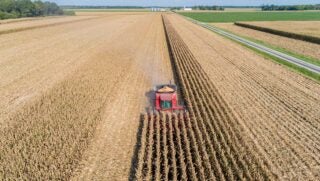African swine fever has been wreaking havoc across Asia since 2018. According to the National Pork Producer Council, the number of sows China has lost to ASF is more than the entire U.S. sow herd. If this disease were to enter the U.S., it would cause billions of dollars in losses and shut down our export market. However, scientist have been working on a vaccine to protect against this deadly disease.
Today, the U.S. Department of Agriculture’s Agricultural Research Service announced that one of its African swine fever virus vaccine candidates has been shown to prevent and effectively protect both European and Asian bred swine against the current circulating Asian strain of the virus.
Background on ASF
The majority of swine used in the global food supply are produced in Asia, where the virus has been causing outbreaks and devastating losses to the swine industry. African swine fever was originally detected in 2007 in the Republic of Georgia and is known to cause virulent, deadly disease outbreaks in wild and domesticated swine.
Since the original outbreak, ASF has had a widespread and lethal impact on swine herds in various countries in Eastern Europe and throughout Asia. Although the virus is causing profound economic losses to the swine industry, there have not been any outbreaks in the United States. Thankfully, the virus is unable to transmit from pigs to humans.
The fix
Newly published USDA research, as highlighted in the journal Transboundary and Emerging Diseases, shows that ARS scientists have developed a vaccine candidate with the ability to be commercially produced while still maintaining its vaccine efficacy against Asian ASFV strains when tested in both European and Asian breeds of swine. The findings also show that a commercial partner can replicate experimental level results and prevent the spread of the virus.
Previous studies were done under laboratory conditions only in European bred pigs using an ASFV isolate, or sample, from the initial outbreak.
“We are excited that our team’s research has resulted in promising vaccine results that are able to be repeated on a commercial level, in different pig breeds, and by using a recent ASFV isolate,” said ARS researcher Douglas Gladue. “This signals that the live attenuated vaccine candidate could play an important role in controlling the ongoing outbreak threatening the global pork supply,” said ARS researcher Douglas Gladue.
The onset of immunity was revealed in approximately one-third of the swine by second week post-vaccination, with full protection in all swine achieved by the fourth week.
Continuing the research
A commercial vaccine for ASFV will be an important part of controlling ASFV in outbreak areas. Researchers will continue to determine the safety and efficacy of the vaccine under commercial production conditions and are closely working with their commercial partner in Vietnam.
To date, ARS has successfully engineered and patented five ASF experimental vaccines and has fully executed seven licenses with pharmaceutical companies to develop the vaccines. ARS continues to evaluate additional commercial partners to develop these vaccines.
In addition to the vaccine, Agriculture Secretary Vilsack announced yesterday that $500 million in USDA Commodity Credit Corporation funds will be allocated to prevent and prepare for African swine fever.


